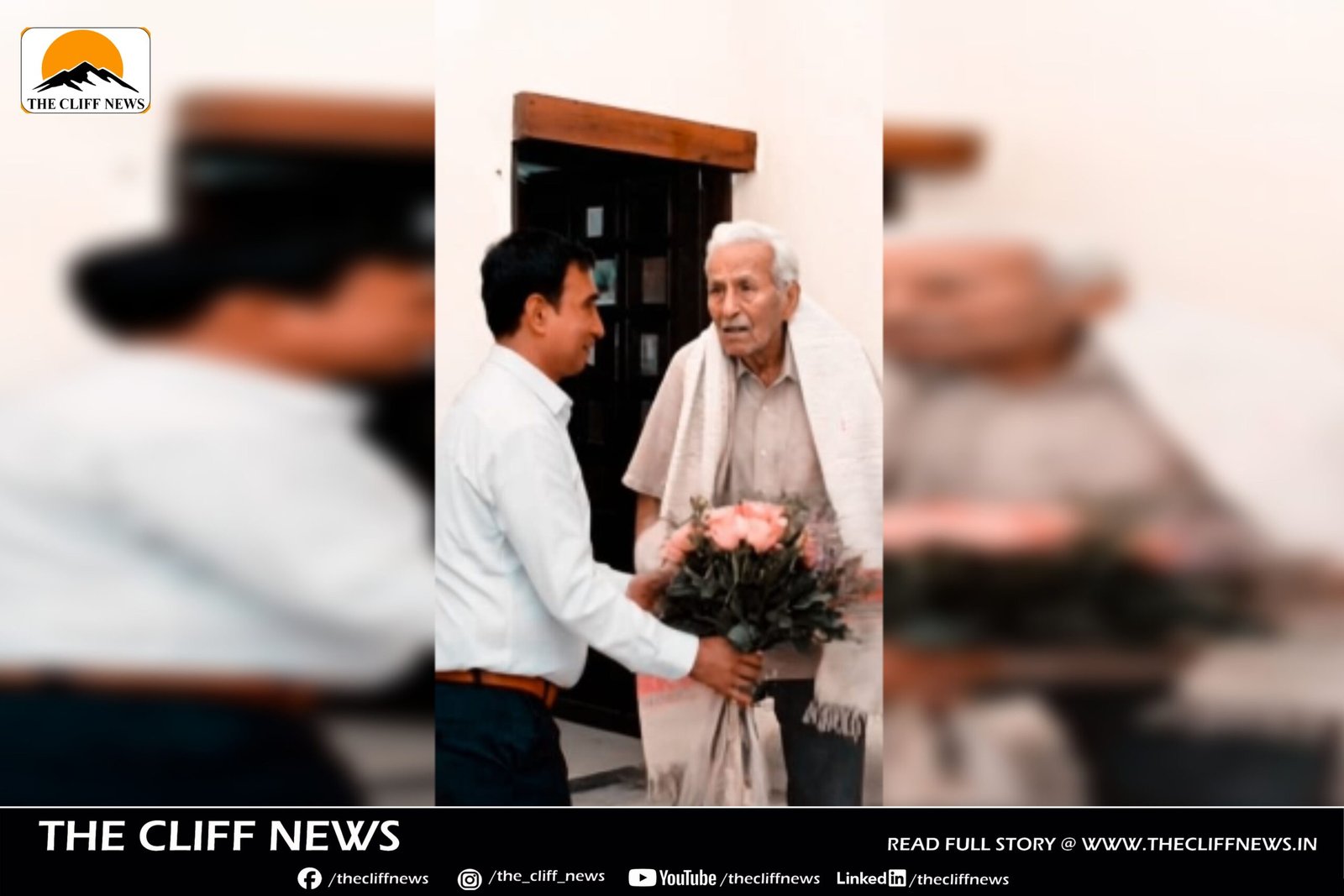A few days ago, I had the breathtaking honor of meeting Vinod Kumar Shukla at his unassuming abode in Chhattisgarh—a sanctuary of simplicity, tucked far from the blinding glare of literary stardom, radiating a quiet, mesmerizing charm. The air there was steeped in humility, his words sparse yet brimming with profound wisdom and a piercing sensitivity that could rend the soul. Today, March 25, 2025, as I etch these lines, a seismic announcement reverberates through the ether—Shukla, the tireless titan of Hindi literature, has been crowned with India’s loftiest literary accolade, the 59th Jnanpith Award. At 88, he stands as the 12th Hindi maestro and the first from Chhattisgarh to seize this dazzling honor, a tribute to his “simplicity” and “sensitivity,” as proclaimed by the Bharatiya Jnanpith committee. Yet, beneath this splendid triumph lurks a man locked in a heart-wrenching duel with time, his spirit tethered to the unfinished symphonies of his craft.
His voice, raw and resonant, slashes through the veneer of literary pretense like a thunderbolt. “I’ve seen a universe, heard its whispers, felt its pulse, yet written so little,” he once confessed, words that still echo in my heart with a haunting, splendid ache. “When I ponder how much I yearned to write, it feels like an ocean remains uncharted.” These aren’t mere words—they’re daggers, plunging deep into the soul, the anguished cry of a genius racing against mortality, his pen trembling under the weight of untold tales. “While I breathe, I long to finish what’s left, but perhaps I’ll never complete it,” he said, his voice splintering with regret, a sound as fragile as a fading breath. This isn’t just reflection—it’s a soul-shattering plea to outrun time’s relentless march.
Born in 1937 in Rajnandgaon, Shukla’s life is a mesmerizing tapestry of paradoxes. His mother’s voice, reciting Bengali literature aloud, sowed the seeds of poetry in his tender heart, yet a failure in his 12th-grade Hindi exam spun his destiny into a mind-blowing twist. “Had I not stumbled, I’d be mending bodies or forging bridges,” he chuckled once, a revelation that still sends shivers of awe down my spine. Imagine—a healer or builder confined to ink and paper, yet within that confinement, he birthed an entire cosmos! At 20, an encounter with the literary colossus Gajanan Madhav Muktibodh fanned his poetic flame into a roaring blaze. Soon, his words graced the pages of Pustak Kriti, and he pursued a master’s in agriculture in Jabalpur. Agriculture and poetry—one nurtures the earth, the other the soul. Isn’t that a splendid metaphor too exquisite to ignore?
Shukla’s literature is a ferocious rebellion against bombast. In Naukar ki Kameez, he binds a clerk’s existence in the crushing chains of bureaucracy; in Khilega Toh Dekhenge, he lets a village’s quirks pirouette in whimsical splendor. Deewar Mein Ek Khirki Rehti Thi, a tender serenade to young love, remains my heart’s cherished melody. A friend once whispered, “His effortless grace is his might,” and those words sank into my very marrow. Yet, his poetry rewrites the grammar of Hindi literature. A writer rightly marveled, “Shukla redefined its diction.” His 1992 gem Sab Kuchh Hona Bacha Rahega lingers in my mind—a melody of hope amid despair, a balm for shattered spirits.
Since 1965, the Jnanpith had anointed just 11 Hindi luminaries before him. Shukla’s victory heralds a dazzling dawn—Chhattisgarh’s raw genius stepping into the spotlight. Critics murmur his obscurity stems from his seclusion, but I see a breathtaking defiance—a vow to capture the heartbeat of the ordinary. “I write when something beckons me,” he once said. “The first line summons the next; purpose eludes me.” Herein lies his excellence—writing as vital as breathing, not a ladder to fame.
Great minds laud this path. “A writer’s duty is to save civilization,” a thinker once thundered. Shukla does just that, preserving humanity in the tales of clerks, teachers, and villagers. A professor told me, “His stories voice the voiceless,” while another sees a humanistic vision in his work—an insight now priceless to me.
Yet, time ticks with ruthless glee. “I don’t know how to write faster,” his lament mirrors my own fears. The Jnanpith salutes his artistry, but what of the unwritten? The stories locked in his aging mind? A poet mused, “Literature is news that stays news.” Shukla’s creations are that—eternal, outliving his final breath.
Reflecting on that meeting—his weary frame, his word-drenched soul—I’m left with a bittersweet pang. This award is a crown, yes, but also a stark reminder of time’s tyranny. His pen may falter, yet his spirit soars in every line. His life teaches me to see deeply, hear keenly. So, as this March evening fades, I pledge—not to his end, but to the undying flame flickering in Chhattisgarh’s quiet corner.
Dr. Suresh Kumar Mishra ‘Uratript’, Renowned Litterateur



